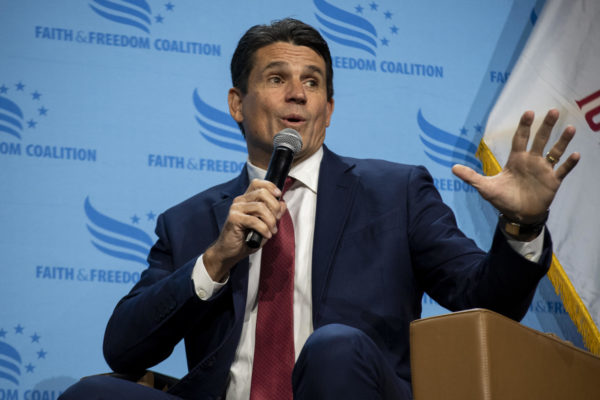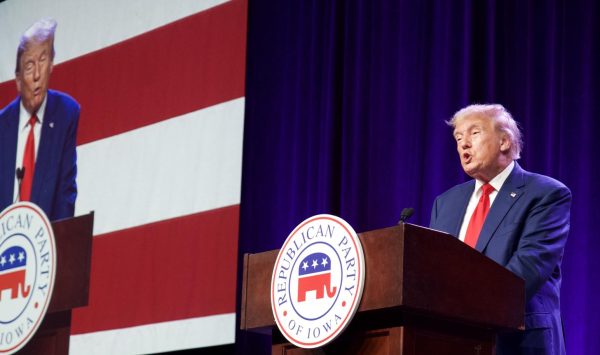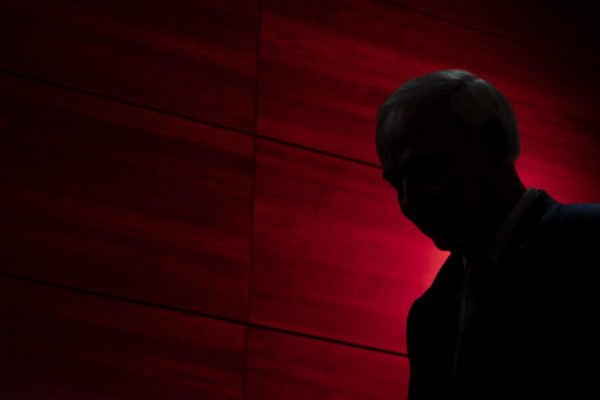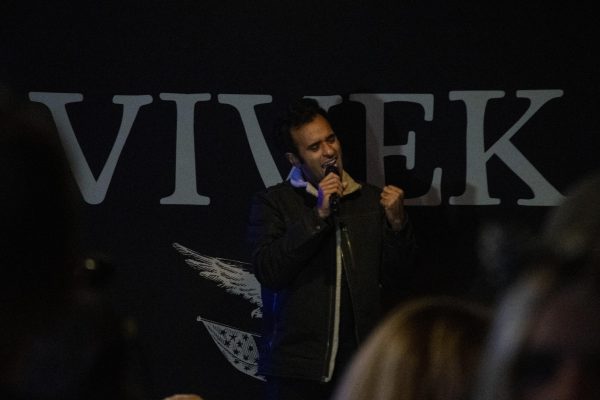Upbeat Obama says US will revive past ‘reckoning’
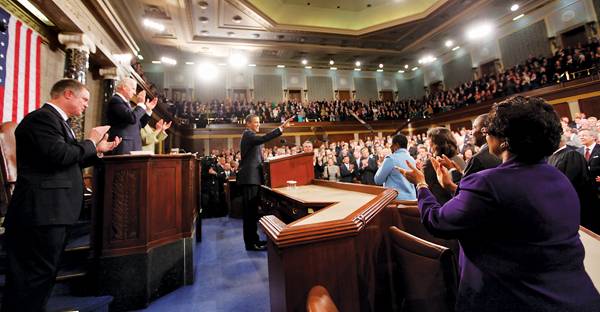
President Barack Obama waves prior to his address before a joint session of Congress in the House Chamber of the Capitol in Washington, Tuesday, Feb. 24, 2009. (AP Photo/Pablo Martinez Monsivais, Pool)
February 24, 2009
WASHINGTON — President Barack Obama promised a nation shuddering in economic crisis Tuesday night that he would lead it from a dire “day of reckoning” to a brighter future, summoning politicians and public alike to shoulder responsibility for hard choices and shared sacrifice.
“The time to take charge of our future is here,” Obama declared, delivering his first address to a joint session of Congress.
Offering words of reassurance to an anxious nation, he declared, “Tonight I want every American to know this: We will rebuild, we will recover, and the United States of America will emerge stronger than before.”
“We are a nation that has seen promise and peril,” he said. “Now we must be that nation again.”
Cheered robustly as he entered the House chamber, Obama grinned, shook hands and kissed lawmakers and stopped for a lengthy embrace with Supreme Court Justice Ruth Bader Ginsburg, back on the bench only this week after surgery for pancreatic cancer.
To deal with the current crisis, deepening each day, the president said more money will be needed to rescue troubled banks beyond the $700 billion already committed last year. He said he knows that bailout billions for banks are unpopular — “I promise you, I get it,” he said — but he also insisted that was the only way to get credit moving again to households and businesses, the lifeblood of the American economy.
Along with aid for banks, he also called on Congress to move quickly on legislation to overhaul outdated regulations on the nation’s financial markets.
“I ask this Congress to join me in doing whatever proves necessary,” Obama said. “Because we cannot consign our nation to an open-ended recession.”
Thinking longer-term, Obama said in a speech lacking specifics and devoid of initiatives that both political parties must give up favored programs while uniting behind his campaign promises to build better schools, expand health care coverage and move the nation to “greener” fuel use.
Just five weeks after his inauguration, Obama addressed an ebullient Democratic congressional majority and an embattled but reinvigorated GOP minority as well as millions of viewers. Despite the nation’s economic worries and the lack of support for his plans from all but a few Republican lawmakers, Obama enjoys strong approval ratings across the nation.
Louisiana’s young, charismatic governor, Bobby Jindal, delivering the televised GOP response, exhorted fellow Republicans to be Obama’s “strongest partners” when they agree with him. But he signaled that won’t happen much, calling Democrats in Congress “irresponsible” for passing the $787 billion stimulus package that Republicans have criticized as excessive and wasteful.
“The way to lead is not to raise taxes and put more money and power in hands of Washington politicians,” Jindal said, according to excerpts of his remarks released by the Republican Party. “Who among us would ask our children for a loan, so we could spend money we do not have, on things we do not need?”
Jindal is considered a likely presidential contender in 2012.
Obama spoke as bad economic news continued to pile up, felt all too keenly in U.S. homes and businesses. Some 3.6 million jobs have disappeared so far in the deepening recession, which now ranks as the biggest job destroyer in the post-World War II period. Americans have lost trillions of dollars in retirement, college and savings accounts, with the stock market falling nearly half from its peak of 16 months ago.
Aware that his and his party’s fortunes will suffer if he cannot right the economic picture, Obama sought to blend the kind of grim honesty that has become his trademark since taking office with a greater emphasis on optimism.









